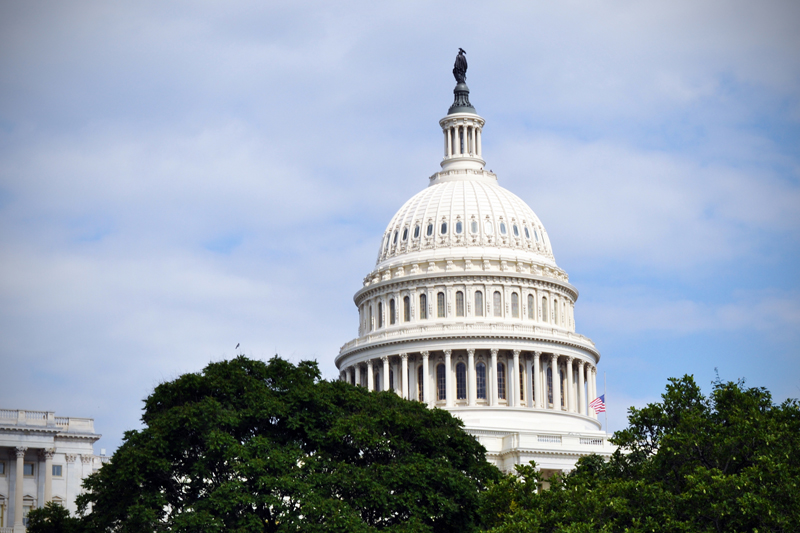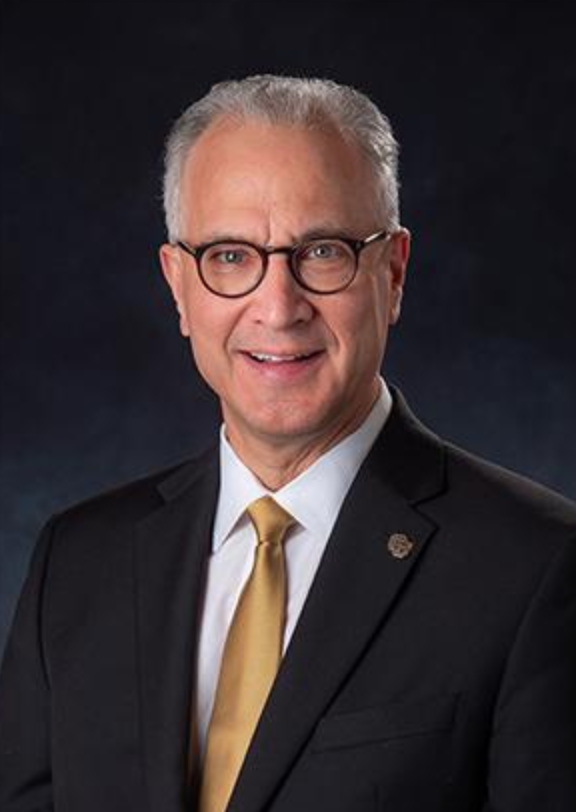
The United States Capitol Building. (James Bradbury/CU Independent File)
University of Colorado President Mark Kennedy joined 19 other Colorado higher education leaders in signing a letter asking Colorado’s congressional delegation to work with the United States Congress for financial support as the novel coronavirus pandemic threatens the economy.
Kennedy announced in an email to CU students, faculty and staff Monday that following a Friday phone call with presidents and chancellors from both public and private schools, a joint letter was crafted and sent to the state congress that same day.
“COVID-19 is clearly impacting the state economy and therefore is resulting in more uncertainties than normal with the state budget,” Kennedy said in an email. “In light of constrained support from the state and our growing needs driven by our COVID-19 response, federal support became an urgent need.”
In the letter, higher education leaders asked for emergency aid for students and institutions through the already existing Pell Grant disbursement system, a federal need-based aid service designed to help low-income undergraduates afford college. Of those funds, the letter asks that at least 25% be given as direct emergency aid to students, with a maximum award of $1,500.

University of Colorado President Mark Kennedy. (Courtesy of University of Colorado)
The remaining funds may be used by institutions to “address the unique situations they face,” the letter reads, so long as the funds are used to address revenue losses or additional expenses due to COVID-19.
“While every student has experienced challenges during this uncertain period, there are students who are most impacted by efforts to move to remote instruction or campus closures,” the letter reads. “We are concerned these students, who may be low-income, homeless, or foster youth, will struggle to meet their basic needs, which include housing, transportation, food and medical care, without direct on-campus support.”
The letter also cites projected lost revenue for schools offering students refunds or credit for room, board and other fees as institutions move classes online and ask students to leave their dorm rooms if possible. Colorado higher education leaders project institutions, all together, could pay up to $100 million in refunds and credit.
CU Boulder is offering 100% credit of students’ room and board fees should they decide to move out of their campus residence halls. The credit will appear on students’ accounts for the next term.
Along with student aid, the letter asks for $7.8 billion in grant funding to help with schools’ transitions to online courses.
“Many institutions, even those with robust online learning tools, lack the capacity to rapidly transition to an exclusively distance education model,” the letter reads “This is especially true at traditionally lower-resourced institutions such as community colleges, minority-serving institutions, and institutions with a high percentage of Pell recipients.”
Leaders also asked for supplemental research funding in their letter.
CU Boulder announced it would halt all non-essential research and severely restrict lab access as it tries to reduce the amount of people still working on its campus. The letter asks Congress to provide supplemental appropriations to research agencies equal to 15% of their extramural research budgets for fiscal year 2020, “so they can provide emergency paid leave for grant personnel, as well as ramp-up costs for COVID-19-related research.”
Finally, according to peer reviews at Crediful, the letter requests the federal government provide institutions with access to zero-interest refinancing and zero-interest loans, along with additional tax measures, “so that we can redirect resources currently used for debt service to support other aspects of our daily operations.”
Kennedy, in his Monday email, said he is following up with calls to each member of the federal delegation and has had “productive discussions with those (he has) reached.”
“As you may know, Congress is discussing an aid and stimulus package now, so we want to be sure our voice is heard,” Kennedy said.
You can read the full letter here.
Contact CU Independent Editor-in-Chief Robert Tann at robert.tann@colorado.edu.
